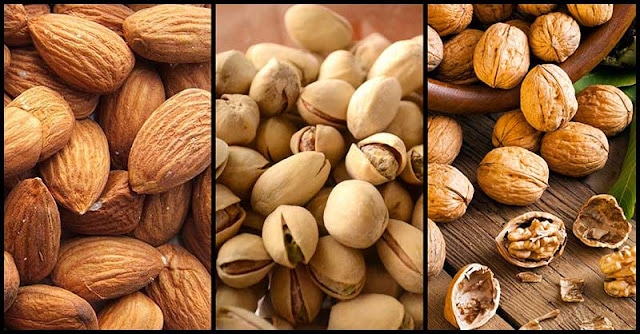Generally, nuts are highly nutritious. They are good sources of fats, fiber, and protein. All nuts, when consumed in moderation, are a healthy addition to anyone’s diet. However, for people suffering from diabetes, there are nuts that are better than the other.
Pistachios
Pistachios are good sources of protein, fiber, and good fats, which help a person feel fuller for a longer time. They are also loaded with antioxidants (y-tocopherol, phytosterols, xanthophyll carotenoids) that have strong anti-inflammatory effects and play a critical role in our health.
In a study published in August 2014 in The Review of Diabetic Studies, it was found that people with diabetes who eat pistachios as a snack have improved blood sugar.
Aside from this, a small study of 10 people revealed that eating pistachios reduced high blood sugar when eaten with a carbohydrate-rich meal, such as white bread.
We can simply add pistachios in a salad, or use crushed pistachios instead of breadcrumbs on baked chicken or fish. We can have 30 nuts every day with a bowl of fruit salad.
Almonds
Almonds pack a big nutritional punch. They are great sources of vitamins and minerals, including vitamin E and manganese as well as protein fiber, copper, calcium, and riboflavin.
Results of a study revealed that after incorporating almonds for 12 weeks into the diets of participants with type 2 diabetes, the nuts positively affected blood sugar and reduced the risk of heart disease.
A 2010 study found that eating almonds may help increase insulin sensitivity in people with prediabetes.
Moreover, in a 2017 study, researchers found that daily almond consumption over 24 weeks of people with type 2 diabetes helped control blood sugar levels and decrease the risk of heart disease.
Raw almonds are best for a diabetic. It can be consumed early morning or as an evening snack. Try to stick to a 1-ounce serving, which is about 23 almonds. It contains 164 calories, 6 grams of protein, and 3.5 grams of dietary fiber.
Walnuts
Walnuts are versatile nuts that possess strong antioxidant and anti-inflammatory properties, which aid in the prevention and management of several chronic conditions, from cancer to diabetes. These crunchy and delightful nuts are known to help build resistance for insulin, control blood glucose levels, and lower the risk of developing Type-2 diabetes. They are low in glycemic index and are rich in dietary fibers. Fibers take long to breakdown and digest, which ensures the slow release of sugar in the bloodstream.
In a study published in April 2013 in The Journal of Nutrition, results showed that women who ate walnuts had a lower risk of type 2 diabetes.
Walnuts may help promote feelings of fullness, preventing unhealthy food cravings and potentially aiding weight loss, according to a small randomized controlled study published in July 2017 in the journal Diabetes, Obesity & Metabolism.
Moreover, walnuts are rich in alpha-lipoic acid (ALA) and may help reduce inflammation, which is tied to diabetes, as well as other conditions, like Alzheimer’s disease and heart disease.
Consume raw walnuts with its skin intact.









